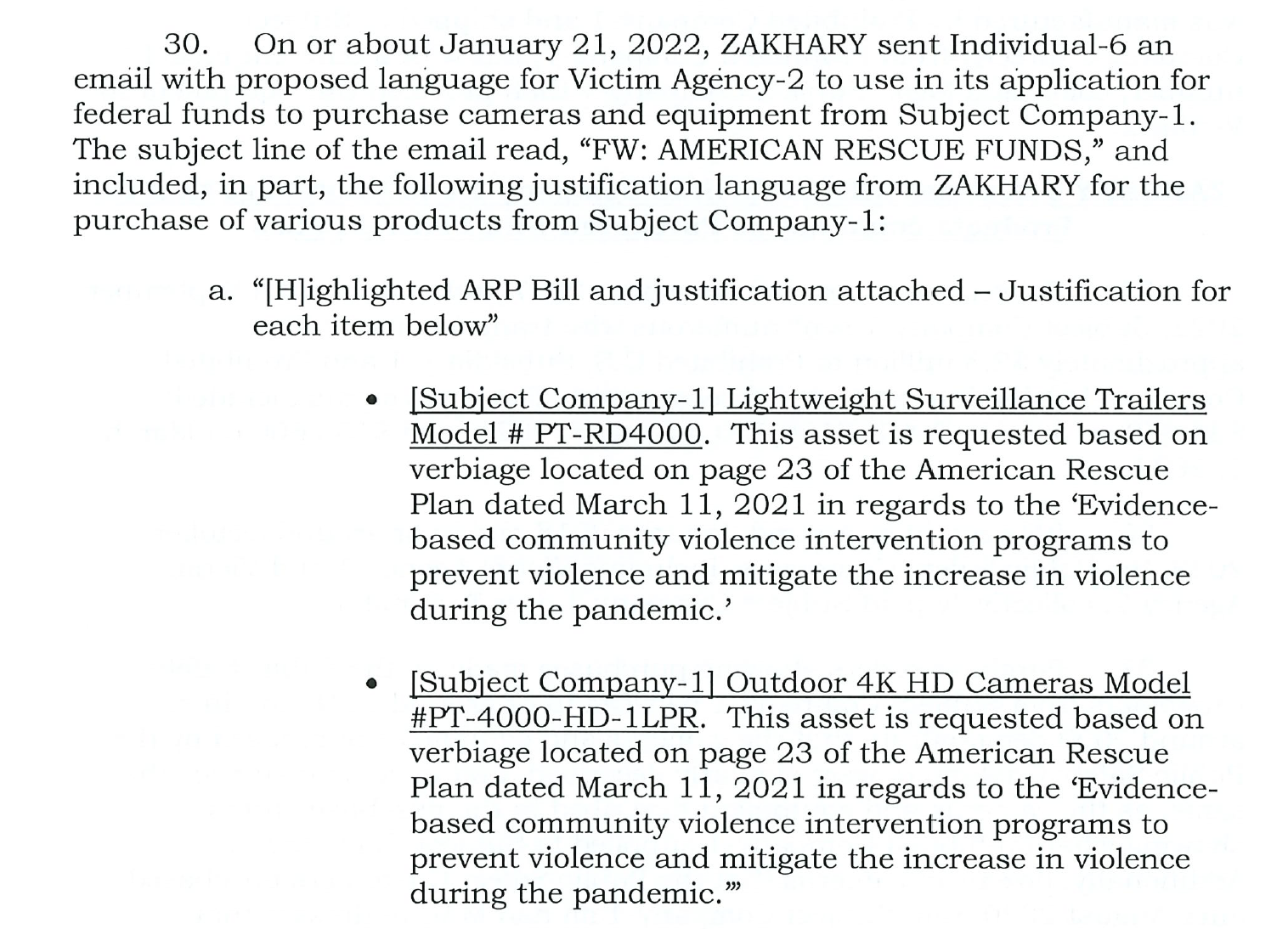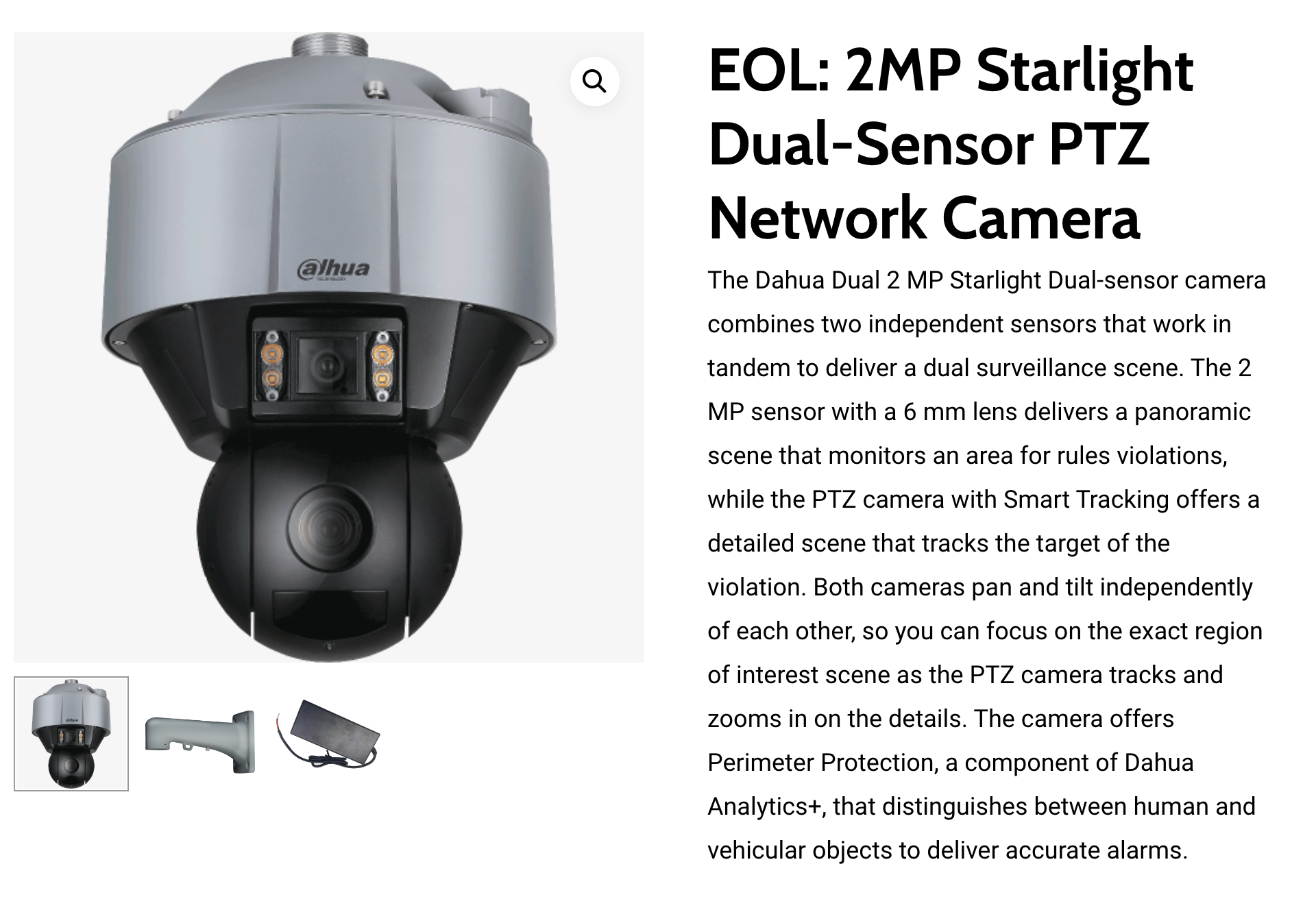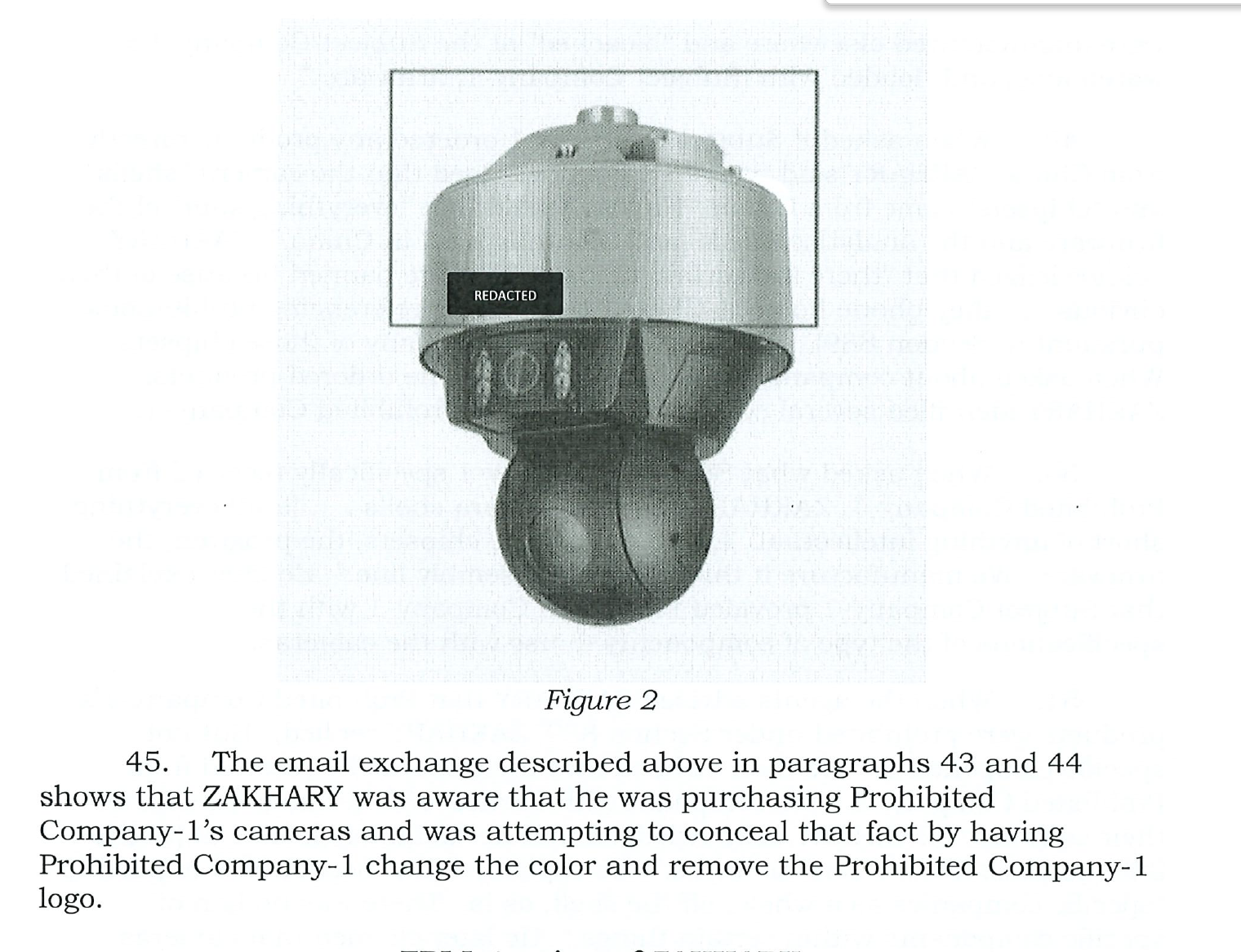Subscribe
This article was produced in collaboration with Court Watch, an independent outlet that unearths overlooked court records.
State and local agencies in New Jersey bought at least $35 million worth of equipment from a local company that rebranded banned Chinese surveillance cameras made by Dahua Technology, a company that has been implicated in the surveillance of the Uyghur people in Xinjiang. At least $15 million of the equipment was bought using federal COVID relief funds, according to a federal criminal complaint.
The feds charged Tamer Zakhary, the CEO of the New Jersey-based surveillance company Packetalk, with three counts of wire fraud and a separate count of false statements for repeatedly lying to state and local agencies about the provenance of his company’s surveillance cameras. Some of the cameras Packetalk sold to local agencies were Dahua cameras that had the Dahua logo removed and the colors of the camera changed, according to the criminal complaint.
Dahua Technology is the second largest surveillance camera company in the world. In 2019, the U.S. government banned the purchase of Dahua cameras using federal funds because their cameras have “been implicated in human rights violations and abuses in the implementation of China’s campaign of repression, mass arbitrary detention, and high-technology surveillance against Uyghurs, Kazakhs, and other members of Muslim minority groups in Xingjiang.” The FCC later said that Dahua cameras “pose an unacceptable risk to U.S. national security.” Dahua is not named in the federal complaint, but I was able to cross-reference details in the complaint with Dahua and was able to identify specific cameras sold by Packetalk to Dahua’s product.
According to the FBI, Zakhary sold millions of dollars of surveillance equipment, including rebranded Dahua cameras, to agencies all over New Jersey despite knowing that the cameras were illegal to sell to public agencies. Zakhary also specifically helped two specific agencies in New Jersey (called “Victim Agency-1” and “Victim Agency-2” in the complaint) justify their purchases using federal COVID relief money from the CARES Act, according to the criminal complaint. The scale of the purchases highlight the surveillance tech buying bonanza that happened across government agencies with COVID funds. The FBI cites emails titled “FW: AMERICAN RESCUE FUNDS” and “Fwd: *** CONFIDENTIAL *** Covid 19 justification.” One of the emails said that the equipment could be used “to support Community COVID-19 Testing sites, communications, containment, and contact tracing.”

The feds allege, essentially, that Zakhary tricked local agencies into buying banned cameras using COVID funds: “Zakhary fraudulently misrepresented to the Public Safety Customers that [Packetalk’s] products were compliant with Section 889 of the John S. McCain National Defense Authorization Act for 2019 [which banned Dahua cameras], when, in fact, they were not,” the complaint reads. “As a result of Zakhary’s fraudulent misrepresentations, the Public Safety Customers purchased at least $35 million in surveillance cameras and equipment from [Packetalk], over $15 million of which was federal funds and grants.”
Packetalk advertises an entire surveillance “ecosystem” that “enhance[s] public safety operational effectiveness using artificial intelligence, intelligent video solutions and analytics, wireless technologies, and data driven software.” A document about its deal with the township of West Orange advertises that Packetalk’s systems are “capable of automated surveillance” and notes that they integrate with other surveillance services such as gunshot detection by ShotSpotter.

Over the last few years, the company sold automated license plate readers (ALPR) and other surveillance cameras to state prosecutors in New Jersey and a handful of cities and towns throughout the state, including Trenton, Newark, Florence, West Orange, and Montville Township. Packetalk has also advertised partnerships with Passaic, East Orange, and Long Beach Township. In September, Trenton said it used “Packetalk cameras to covertly conduct surveillance throughout the city,” which helped lead to a decrease in crime. The Mercer County prosecutor’s office also praised Packetalk in June ahead of a Packetalk demo at a police security expo in Lyndhurst New Jersey.
In November—roughly a year after the FBI began its investigation into Packetalk’s connection, New Jersey’s Office of the Attorney General officially recognized Packetalk as a “certified vendor” for its networked automated license plate reader program. In April, Attorney General Matthew Platkin and Governor Phil Murphy appropriated $10 million in funding for ALPRs “to combat auto theft” using federal funds from the American Rescue Plan.
Platkin’s office acknowledged a request for comment from 404 Media but did not provide comment. Packetalk did not respond to a request for comment. Dahua did not respond to a request for comment.


According to the criminal complaint, a Packetalk camera called “PT-4000-HD-1LPR” was actually manufactured by Dahua “but with a different model number, color, and logo.” Emails included in the complaint show Zakhary asking Dahua employees to rebrand and change the colors of specific cameras. Public records show that Montville Township in New Jersey bought these specific cameras. A spokesperson for the Montville Township police department acknowledged a request for comment but said they couldn’t provide any information until they had read the complaint.
I found one of the cameras shown in the federal criminal complaint on Dahua’s website, called the “EOL: 2MP Starlight Dual-Sensor PTZ Network Camera.”
Emails included in the complaint between Zakhary and a Dahua employee show Dahua telling Zakhary that the company did not believe its products could be purchased with federal funds: “As we understand, the project with Federal funds has quite limitation [sic] to use Dahua products.” Zakhary later tried to get a discount on the cameras because of the blacklisted status: “What is the best you can do on the pricing? I’m comparing spec for spec quality wise and something competition has over your company, is they are not blacklisted by US government.” Zakhary had another conversation with another Dahua employee in which Dahua offers up a server in Mexico City for Packetalk to store surveillance data: “Here are solutions: Dahua we have a server which is designed to safe city and can restore 400 million records. We deploy one in Mexic[o] City. Once the data comes to hundreds [sic] million, only city-level hardware server can support it. [sic]”
“We can’t rely on outside devices for state and federal compliance. Dahua is on banned list,” Zakhary responded. “It’s a big financial and business risking [sic] working with Dahua. Given this situation we try to make things as legit as possible.”
In an interview with the FBI included in the criminal complaint, Zakhary claimed that the cameras he was selling were “shells … and everything short of anything intellectual.” He said that the cameras Packetalk sold were “bleached” in the United States and that the cameras he sold to state agencies “does not represent the guts of the camera.” He said he believed that the cameras he sold were compliant because they were running Packetalk’s software, not Dahlia’s.
Lowes, Home Depot, and Best Buy stopped selling Dahua cameras to consumers in 2021 after the company’s implication in Uyghur surveillance. A 2021 investigation by The Intercept found that the U.S. Military continued buying Dahua cameras in contravention of its own ban.


